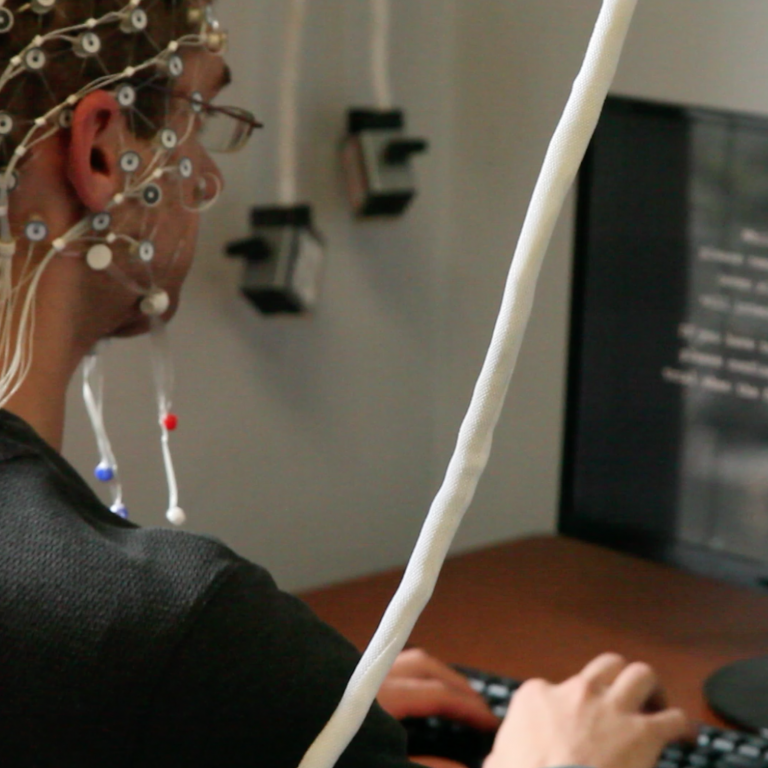Community Contribution
By Joel Duncan, Modern Recovery Services
"Change is the only constant in life." – Greek philosopher Heraclitus.
The way humans connect and interact has evolved over the years. With the increase in the digital age, we have become more and more connected to a mass amount of information with just the click of a button. Many people go online in search of information, support, and connection.
Parents trying to limit their teen’s screen time may be futile as most teens (90-95%) have access to digital devices (Pew Research Center, 2022) such as smartphones and computers. With this access, there may be a unique opportunity for adolescents to find connection and therapeutic support and cultivate wisdom through digital mediums.
While wisdom is often associated with older individuals, young people can also discover it online through shared experiences, guidance from mentors, and conversations with peers. In a time when there is criticism about screens and digital media distancing us from genuine human interaction, can these platforms bridge the gap towards empathy and deeper understanding?
This article delves into how these online spaces influence an adolescent's journey toward making wise decisions and gaining a deeper understanding of the world. It explores how these platforms help to promote attributes such as critical thinking, empathy and perspective-taking, and collaboration with others. Ultimately, the aim is to consider how online therapy for teens could foster wise teen interactions - shaping a more introspective and thoughtful generation.
Creating Online Connections
Adolescents, especially, spend a significant amount of time online and connect via the Internet. In fact, according to the American Academy of Child & Adolescent Psychiatry (2018), social media has played a significant role in adolescent culture – 75% of them reported having at least one active social media profile, and 51% reported visiting a social media site at least daily.
While it has been reported that high frequency social media use (more than 3 hours per day) may have negative effects such as poor mental health and decreased sleep quality (Riehm, et al, 2019), the pandemic demonstrated the positive impact and necessity of online connection (Spiekerman et al., 2023). Further social media is not the only way teens communicate and connect online. Many teens use digital media to help build and maintain social relationships with peers and mentors.
Despite social media's adverse effects, using media such as texting, video calls, or even social gaming can provide social connections. These connections show a reduction in loneliness and depressive symptoms (Spiekerman et al., 2023). With the rise of online platforms, access to mental health treatment is also increasing. Utilizing these platforms has changed the digital landscape for providing mental health treatment and offers a place to learn and develop wisdom.
The Online Therapy Landscape for Adolescents
Alongside the evolution of media in the digital era, traditional therapy has been reshaped and redefined. People have more comprehensive access to treatments and learn new skills. For adolescents, this online world isn't only about social interaction; it opens up the potential to seek and receive mental health treatment and engage in emotional exploration.
The current online therapeutic landscape offers adolescents a unique blend of accessibility and anonymity. They can find immediate support right at their fingertips in moments of need. Online mental health treatment can provide wisdom and guidance to individuals despite geographical location.
Its ability to form and build community distinguishes the online realm. Many teens are comfortable with the Internet and enjoy chatting online. Since teens often navigate issues of identity and belonging, online therapy platforms offer a space for them to be seen and heard without judgment or stigma (Sweeney et al., 2019).
Virtual teen therapy offers a space for adolescents to engage in the therapeutic process and connect them with therapists, mentors, and peers going through similar situations. This connection can give them a place to feel seen, heard, and understood.
Cultivating Wisdom Through Virtual Therapy
Those considered wise have tended to be compassionate, can reflect on their experiences, and are open-minded and decisive people (Ardelt & Sharma, 2023). The interactions offered by virtual mental health treatment are built on mutual respect and shared narratives. It introduces adolescents to the aspects of wisdom early on.
They witness the value of reflection, the importance of empathy, and the power of informed decision-making in real time. Each interaction, whether a shared story or a piece of advice, becomes a stepping-stone in their journey toward understanding and wisdom. So how can these online platforms and interactions foster wise interactions in adolescents?
Offering Shared Experiences and Collaboration in Digital Therapy
Shared stories and collective insights have historically formed the bedrock of wisdom (Pillemer et al., 2022). Values and lessons get imparted and passed down through generations. Digital platforms represent a new frontier of sharing experiences and offering spaces for collaboration.
As adolescents engage in these online therapeutic spaces, such as Modern Recovery, they aren't merely sharing their stories; they're partaking in a collective experience and working together on a shared goal. Each narrative, each comment, and every shared emotion contributes to a broader understanding of the human condition.
In these interactions, wisdom is not only imparted—it's co-created. By having a space to share experiences and work together, adolescents learn to view events from many perspectives. They engage in reflective listening, an essential attribute of wisdom, wherein they process the content, underlying emotions, and contexts. They learn to work together in their shared experiences.
Improve Compassion and Empathy
Through targeted strategies, perspective taking and empathy is enhanced (Cooke et al. 2018). Teens can learn to build this empathy and compassion for not only others but themselves as well. Engaging in therapy digitally allows teens to reflect upon and articulate their feelings in a safe and private space. As therapists guide them through understanding their emotions, adolescents can also better grasp the feelings of others. This process of introspection, combined with the therapist's modeling of empathetic listening and communication, can make adolescents more aware of the emotional landscapes of those around them.
Furthermore, many online therapy platforms incorporate group sessions, allowing adolescents to hear and relate to the struggles of their peers, which has been shown to improve empathy (Boele et al., 2019). Adolescents can enhance their emotional intelligence and foster wise interactions with others by cultivating these emotional skills in a controlled, supportive online environment.
Provide Mentor Guidance
The therapist's role in treatment isn’t merely facilitating discussions; they create environments where constructive dialogue flourishes, ensuring that conversations remain grounded in compassion and informed understanding.
Within the therapeutic setting, therapists can present hypothetical scenarios and real-life challenges or reflect on past events to guide teens through an analysis of situations. By posing open-ended questions, therapists encourage teens to evaluate various perspectives, consider potential outcomes, and weigh the pros and cons of different choices.
This therapeutic process not only aids teens in making well-informed decisions in the present but also equips them with tools and frameworks they can apply in future life challenges, fostering independence and resilience. The presence and expertise of the therapist offer a mentor to guide teens toward critical thinking and decision-making. Thinking critically and making informed decisions has been argued as a crucial aspects of wisdom and interacting wisely (Dansereau et al., 2013).
Linking Online Interactions to Wisdom Development
Wisdom, at its core, is the ability to apply knowledge, experience, and insight in the face of life's complexities. It is often considered to be the characteristic of those who have a deep understanding of the world around them (Psychology Today, 2023) and can make decisions based on what is true and right. It's more than mere information; it's the deep-seated understanding and perspective that comes with genuine reflection and empathy.
With a digital world full of misinformation and bullying, it’s important for adolescents to wisely navigate this landscape. Technologies can bring people together when they learn how to do the right thing at the right time. This is the idea of cyber-wisdom (Polizzi & Harrison, 2022), which seeks to educate adolescents on ways to maximize online opportunities and minimize risk.
As adolescents immerse themselves in these digital dialogues, they continually refine their understanding, engage with diverse perspectives, and learn the value of introspection. Each interaction, whether with a peer or a mentor, serves as a lesson in empathy, decision-making, and collaboration.
Online platforms become places for real-world application of these wisdom traits, allowing teens to grapple with challenges, learn to make informed decisions, and cultivate a lens for varying perspectives. As teens navigate their digital therapeutic journey, they continue learning and charting their path toward more profound wisdom.
Challenges and Criticisms of Online Therapy for Teens
While digital mental health platforms have considerable potential in providing education and support for adolescents, it has challenges. Those things that can make virtual therapy so appealing – accessibility and anonymity – can also give rise to concerns.
The lack of face-to-face interactions (Stieger et al., 2023) can make it challenging to discern surface-level engagement from authentic interactions. There is a lot that can get lost during virtual interactions. Namely, eye contact and body language may get lost during digital interactions. Therapists may be unable to observe all changes in body language in teens that can provide important information. The digital divide can inadvertently foster a space where true feelings are masked, challenging genuine therapeutic interactions.
Safety and privacy are also a concern. With data breaches and hacks being real threats, ensuring adolescents have a secure environment for therapeutic discussions becomes imperative.
Misinformation presents another significant challenge to virtual therapy. Peer-to-peer interactions, while valuable, might inadvertently contribute to myths or unverified treatments, complicating the therapeutic process. This possible misinformation is especially true with teens, as they tend to be more responsive to their peers than adults (Ciranka & van den Bos, 2019), underscoring the importance of expert oversight and raising questions about the reliability of information shared in communal spaces.
Lastly, a potential challenge of virtual mental health treatment can be the lack of response to crises. It can be difficult for the therapist to respond quickly and effectively to possible emergencies that may arise.
While the promise of online therapeutic interactions for adolescents is undeniable, it's essential to be aware of the potential pitfalls of providing mental health treatment in a virtual space.
Conclusion and Future Prospects
By providing a platform for shared experiences, improving empathy, and expert guidance, online therapy holds the potential to foster an environment where wisdom can prosper. As we've explored, these online platforms offer a blend of professional advice and continued learning, allowing understanding to deepen, critical thinking to flourish, and empathy to become honed.
However, like all innovations, online therapeutic platforms come with challenges. Addressing these challenges will be critical for digital mental health platforms' continued success and efficacy. With technological advancements, there lies immense potential for refining and enhancing the online therapeutic experience.
Future research could delve deeper into optimizing these platforms, perhaps through increased privacy safeguards and creating safe spaces that encourage diverse perspectives. The combination of technology and mental health holds promise for individual growth, improving emotional intelligence, and fostering adolescent wisdom.
References
- American Academy of Child & Adolescent Psychiatry. (2018, March). Social media and teens. AACAP.org. Retrieved from https://www.aacap.org/AACAP/Families_and_Youth/Facts_for_Families/FFF-Guide/Social-Media-and-Teens-100.aspx
- Ardelt, M., & Sharma, B. (2023). The benefits of wise organizations for employee well-being. Business and Professional Ethics Journal, 42(2), 171–204. https://doi.org/10.5840/bpej2023614140
- Boele, S., Van der Graaff, J., de Wied, M., Van der Valk, I. E., Crocetti, E., & Branje, S. (2019). Linking parent–child and peer relationship quality to empathy in adolescence: A multilevel meta-analysis. Journal of Youth and Adolescence, 48(6), 1033–1055. https://doi.org/10.1007/s10964-019-00993-5
- Ciranka, S., & van den Bos, W. (2019). Social influence in adolescent decision- making: A formal framework. Frontiers in Psychology, (10.), 1-16. https://doi.org/10.3389/fpsyg.2019.01915
- Cooke, A. N., Bazzini, D. G., Curtin, L. A., & Emery, L. J. (2018). Empathic understanding: Benefits of perspective-taking and facial mimicry instructions are mediated by self-other overlap. Motivation and Emotion, 42(3), 446–457. https://doi.org/10.1007/s11031-018-9671-9
- Dansereau, D. F., Knight, D. K., & Flynn, P. M. (2013). Improving adolescent judgment and decision making. Professional Psychology: Research and Practice, 44(4), 274–282. https://doi.org/10.1037/a0032495
- Pew Research Center. (2022, August 10). Teens, social media and technology 2022. Pew Research Center: Internet, Science & Tech Retrieved from https://www.pewresearch.org/internet/2022/08/10/teens-social-media-and-technology-2022/
- Pillemer, K., Nolte, J., Schultz, L., Yau, H., Henderson, C. R., Cope, M. T., & Baschiera, B. (2022). The benefits of intergenerational wisdom-sharing: A randomized controlled study. International Journal of Environmental Research and Public Health, 19(7), 4010-4025. https://doi.org/10.3390/ijerph19074010
- Polizzi, G., & Harrison, T. (2022). Wisdom in the digital age: A conceptual and practical framework for understanding and cultivating cyber-wisdom. Ethics and Information Technology, 24(1) 1-16. https://doi.org/10.1007/s10676-022-09640-3
- Psychology Today. (2023). Wisdom. Psychology Today. Retrieved from https://www.psychologytoday.com/us/basics/wisdom
- Riehm, K. E., Feder, K. A., Tormohlen, K. N., Crum, R. M., Young, A. S., Green, K. M., Pacek, L. R., La Flair, L. N., & Mojtabai, R. (2019). Associations between time spent using social media and internalizing and externalizing problems among US youth. JAMA Psychiatry, 76(12),1266-1273. https://doi.org/10.1001/jamapsychiatry.2019.2325
- Spiekerman, A. M., Guo, Y., Payton, J., Campione-Barr, N., Killoren, S. E., Rote, W. M., & Rose, A. J. (2023). Adolescents’ online connections with friends during COVID-19: An assessment of the forms of communication and their association with emotional adjustment. Children, 10(8), 1281-1293. https://doi.org/10.3390/children10081281
- Stieger, S., Lewetz, D., & Willinger, D. (2023). Face-to-face more important than digital communication for mental health during the pandemic. Scientific Reports, 13(8022), 1-12. https://doi.org/10.1038/s41598-023-34957-4
- Sweeney, G. M., Donovan, C. L., March, S., & Forbes, Y. (2019). Logging into therapy: Adolescent perceptions of online therapies for mental health problems. Internet Interventions, 15, 93–99. https://doi.org/10.1016/j.invent.2016.12.001
About the author:
Joel Duncan is a seasoned freelance writer with a deep-rooted passion for mental health advocacy. His journey into the mental health treatment field was inspired by a personal experience that ignited his commitment to reducing the stigma surrounding mental health issues.
With over 8 years of dedicated work, Joel has authored numerous articles, resources, and publications that have resonated with a wide audience. He's currently responsible for content creation at Modern Recovery Services, where he focuses on educating parents and their teens about adolescent mental health conditions. Joel's approach is rooted in demystifying and destigmatizing mental health, making information more accessible and down to earth. His work emphasizes the importance of addressing these conditions early to ensure brighter, happier, and more fulfilling futures.
For more information and resources on helping adolescents struggling with mental health conditions, please visit Modern Recovery's Teen Therapy page.



